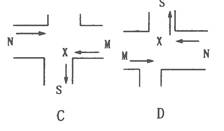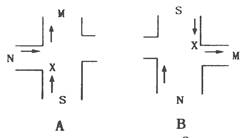ÌâÄ¿ÄÚÈÝ
It was a party. I was 18 and it was fresher(´óÒ»ÐÂÉú) week. I was at the beginning of a course in English Literature and full of enthusiasm for my subject. She was also 18 and enrolled in a course in physics.
¡°Your major is of no use to society. What will you do with it when you graduate, other than teach? Plus, you¡¯re going to be poor your whole life,¡± she said. ¡°You have no soul and your degree is boring. I don¡¯t care how much money you¡¯re going to earn. I¡¯d rather be poor and don¡¯t mind being a teacher. If I love my work I¡¯ll have something far more meaningful than a big bank account!¡± came the reply.
And so it went, back and forth, neither of us giving the other an inch, each of us stubbornly committed to our prejudice. We were both ignorant, but our ignorance was also society¡¯s ignorance. It had always been that way. Scientists mocked(³°Ð¦) humanists; humanists laughed at scientists. Back in the 1960s, the physicist-turned novelist C. P. Snow labeled the sciences-humanities divide ¡°a problem of ¡®the two cultures¡¯¡± . He said it was bad for society. The modern world needed well-rounded people.
I think I know better now, but it would have helped if we had been encouraged to think a little more outside our science and arts ¡°boxes¡±.
That¡¯s why I believe it is healthy that China is beginning a debate on whether it¡¯s wise for young people to have to choose which direction their careers ¨C and lives ¨C will take at such an early age. At the moment, in their second year of high school, students must choose either the sciences or the humanities. After making the choice, they focus their energies on passing the appropriate college entrance exam.
But now, people in China are asking: Is this forced, early decision good for young people or society? Young people need time to explore, to discover where their real talents and interests lie. There are more than just a few middle-aged people out there, stuck in jobs they hate because they made the wrong choice at the wrong time.
And from the point of view of society, isn¡¯t it better for students to delay a while before they decide what to study? Scientists can benefit from learning to develop the critical skills associated with the humanities; students in the humanities, surely, only stand to gain by finding out a little more about science and technology, which are so important to the future of a developing country like China.
With any luck, in the future young people fresh to college will be better informed about the possibilities of education than people of my generation.
¡¾Ð¡Ìâ1¡¿The author describes what happened at a fresher party to ________.
| A£®show that he was ready to defend the subject he enjoyed |
| B£®lead up his argument that the sciences-humanities divide is harmful |
| C£®prove that doing something meaningful is better than having a lot of money |
| D£®describe how fierce students of different majors can be when arguing with each other |
A. Indifferent. B. Unce
 rtain. C. Positive. D. Negative.
rtain. C. Positive. D. Negative.¡¾Ð¡Ìâ3¡¿In the sixth paragraph, an example mentioning middle-aged people is used to show that ________.
| A£®students should not make decisions too early |
| B£®not all people have a talent for or are interested in the sciences |
| C£®these people did not have the chance to make a choice earlier in life |
| D£®the earlier young people make a decision, the better it will be for them |
A. sciences are more practical in the modern world
B. C. P. Snow was a novelist who became a physicist
C. future generations will be able to get more out of education
D. a command of both th
 e sciences and humanities is important to society
e sciences and humanities is important to society¡¾Ð¡Ìâ5¡¿What¡¯s the best ti
 tle for the article?
tle for the article?| A£®The sciences or the humanities, which to choose? |
| B£®High school education in China |
| C£®Isn¡¯t it better to delay the choice of the career direction? |
| D£®A better time to decide what to study |
¡¾Ð¡Ìâ1¡¿B
¡¾Ð¡Ìâ2¡¿D
¡¾Ð¡Ìâ3¡¿A
¡¾Ð¡Ìâ4¡¿D
¡¾Ð¡Ìâ5¡¿C
½âÎö

 ½òÇŽÌÓý¼ÆËãС״ԪϵÁдð°¸
½òÇŽÌÓý¼ÆËãС״ԪϵÁдð°¸
| |||||||||||||||||||||||||||||||||||||||||||||||||||||||||||
|
repeatedly stabbed (´Ì) him with sharp needles, causing blood to pour
steadily out of his leg. Jack was getting a tattoo. His friend Tony had
recently gotten a tattoo, and Jack was so impressed by it that he
decided to get one too. Peer pressure, media
influence, and personal expression are some of the common reasons for
wearing tattoos today.
The desire to be accepted by one¡¯s friends or peers can have a great influence on what a person does. Sometimes, wearing a tattoo can be a sign that you belong to a certain group. Gangs often use special clothes and tattoos to identify their particular group. Some of these groups wear only brand ¨C name clothes. Others wear tattoos. When a person¡¯s friends are all doing something, that person in more likely to do the same thing.
The media is another big influence behind the popularity of tattoos in North America. A wide variety of media images(ÈËÎͼÏñ) show tattoos£people appearing in commercials selling expensive cars, famous sports heroes with tattoos in magazines, fashion models wearing designer clothes that show their bodies tattooed with detailed and colourful patterns. These media images link tattoos to ideas of wealth, success, and status. As a result, many people decide to get a tattoo for its fashion and status value.
Many people decide to wear tattoos in order to express their artistic nature, their beliefs, or their feelings£in other words, to show their individuality(¸öÐÔ). A musician in a rock band may get a tattoo of a guitar on the arm. Some environmentalists may tattoo pictures of endangered animals on their shoulders. A tattoo can be a public sign to show what is important in a person's life.
As you can see, there are many reasons why young North Americans get tattoos. A tattoo can be part of a group's uniform, a sign of fashion. or an expression of individuality. The decision to get a tattoo is most often a result of the influence of friends or media or the desire to express oneself. For Jack, it was a mixture of all three.
63£®Jack has got tattoos in order to .
A£®show his great bravery B£®gain a special experience
C£®make himself more healthy D£®be different from others
64£®According to the passage, media images are linked to .
A£®traditional lifestyle B£®social position
C£®cultural background D£®public interest
65£®We can infer from the passage that .
A£®some people get tattoos out of pressure
B£®tattoo is related to religious belief
C£®getting tattoos costs a lot of money
D£®most people with tattoos are artists
66£®Which of the following shows the structure of the passage?
 |
CP: Central Point P: Point Sp: Sub ¨C point (´ÎÒªµã) C: Conclusion


